第22章
The school disputations of the Middle Ages had a somewhat similar object. They were intended to make sure that the pupil understood his own opinion, and (by necessary correlation) the opinion opposed to it, and could enforce the grounds of the one and confute those of the other. These last-mentioned contests had indeed the incurable defect, that the premises appealed to were taken from authority, not from reason; and, as a discipline to the mind, they were in every respect inferior to the powerful dialectics which formed the intellects of the "Socratici viri"; but the modern mind owes far more to both than it is generally willing to admit, and the present modes of education contain nothing which in the smallest degree supplies the place either of the one or of the other. A person who derives all his instruction from teachers or books, even if he escape the besetting temptation of contenting himself with cram, is under no compulsion to hear both sides; accordingly it is far from a frequent accomplishment, even among thinkers, to know both sides;and the weakest part of what everybody says in defence of his opinion is what he intends as a reply to antagonists.
It is the fashion of the present time to disparage negative logic- that which points out weaknesses in theory or errors in practice, without establishing positive truths. Such negative criticism would indeed be poor enough as an ultimate result; but as a means to attaining any positive knowledge or conviction worthy the name, it cannot be valued too highly; and until people are again systematically trained to it, there will be few great thinkers, and a low general average of intellect, in any but the mathematical and physical departments of speculation. On any other subject no one's opinions deserve the name of knowledge, except so far as he has either had forced upon him by others, or gone through of himself, the same mental process which would have been required of him in carrying on an active controversy with opponents. That, therefore, which when absent, it is so indispensable, but so difficult, to create, how worse than absurd it is to forego, when spontaneously offering itself! If there are any persons who contest a received opinion, or who will do so if law or opinion will let them, let us thank them for it, open our minds to listen to them, and rejoice that there is some one to do for us what we otherwise ought, if we have any regard for either the certainty or the vitality of our convictions, to do with much greater labour for ourselves.
It still remains to speak of one of the principal causes which make diversity of opinion advantageous, and will continue to do so until mankind shall have entered a stage of intellectual advancement which at present seems at an incalculable distance. We have hitherto considered only two possibilities: that the received opinion may be false, and some other opinion, consequently, true; or that, the received opinion being true, a conflict with the opposite error is essential to a clear apprehension and deep feeling of its truth. But there is a commoner case than either of these; when the conflicting doctrines, instead of being one true and the other false, share the truth between them; and the nonconforming opinion is needed to supply the remainder of the truth, of which the received doctrine embodies only a part. Popular opinions, on subjects not palpable to sense, are often true, but seldom or never the whole truth. They are a part of the truth; sometimes a greater, sometimes a smaller part, but exaggerated, distorted, and disjointed from the truths by which they ought to be accompanied and limited. Heretical opinions, on the other hand, are generally some of these suppressed and neglected truths, bursting the bonds which kept them down, and either seeking reconciliation with the truth contained in the common opinion, or fronting it as enemies, and setting themselves up, with similar exclusiveness, as the whole truth. The latter case is hitherto the most frequent, as, in the human mind, one-sidedness has always been the rule, and many-sidedness the exception. Hence, even in revolutions of opinion, one part of the truth usually sets while another rises.
Even progress, which ought to superadd, for the most part only substitutes, one partial and incomplete truth for another; improvement consisting chiefly in this, that the new fragment of truth is more wanted, more adapted to the needs of the time, than that which it displaces. Such being the partial character of prevailing opinions, even when resting on a true foundation, every opinion which embodies somewhat of the portion of truth which the common opinion omits, ought to be considered precious, with whatever amount of error and confusion that truth may be blended. No sober judge of human affairs will feel bound to be indignant because those who force on our notice truths which we should otherwise have overlooked, overlook some of those which we see. Rather, he will think that so long as popular truth is one-sided, it is more desirable than otherwise that unpopular truth should have one-sided assertors too; such being usually the most energetic, and the most likely to compel reluctant attention to the fragment of wisdom which they proclaim as if it were the whole.